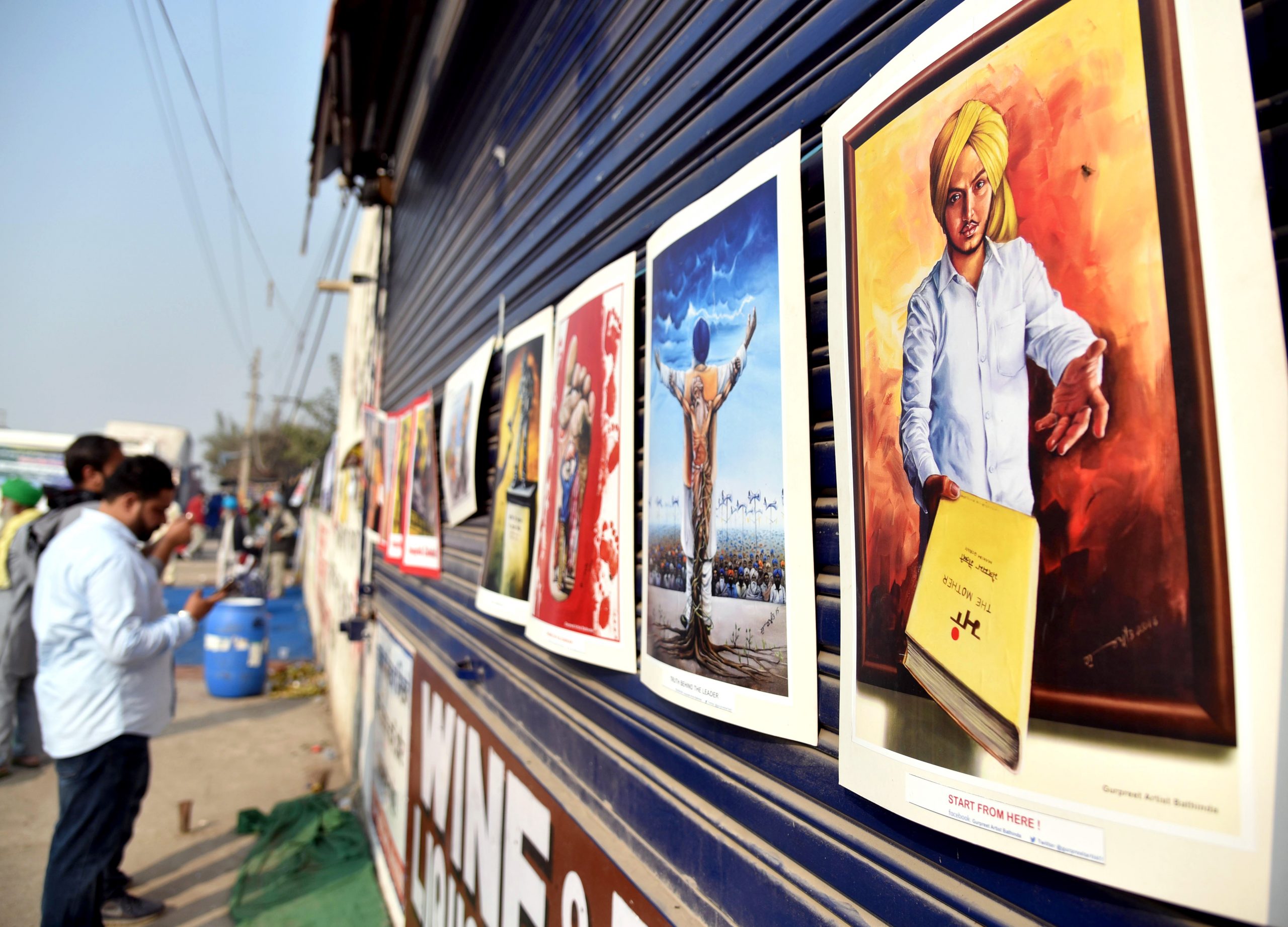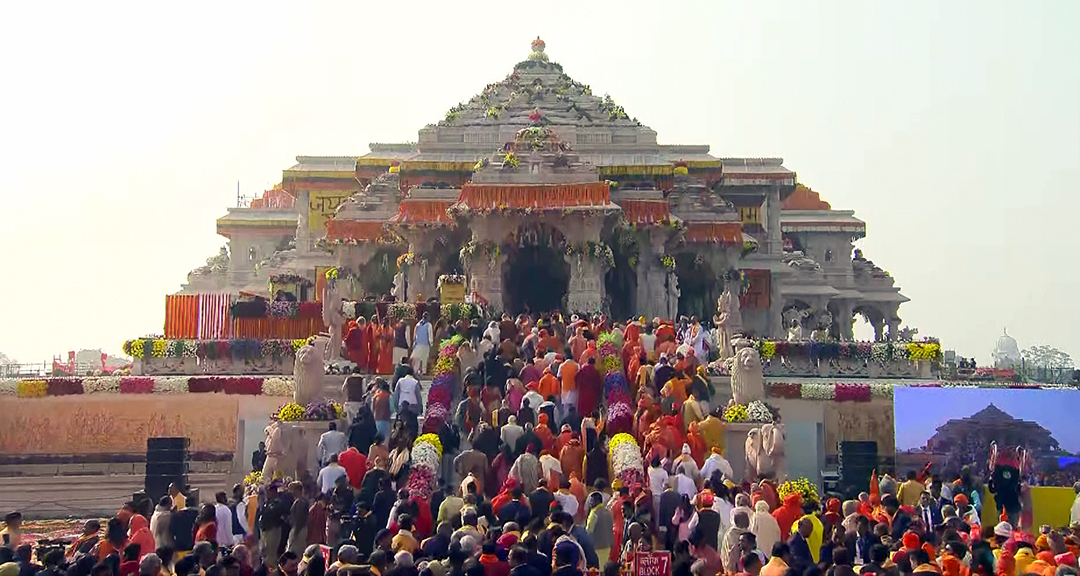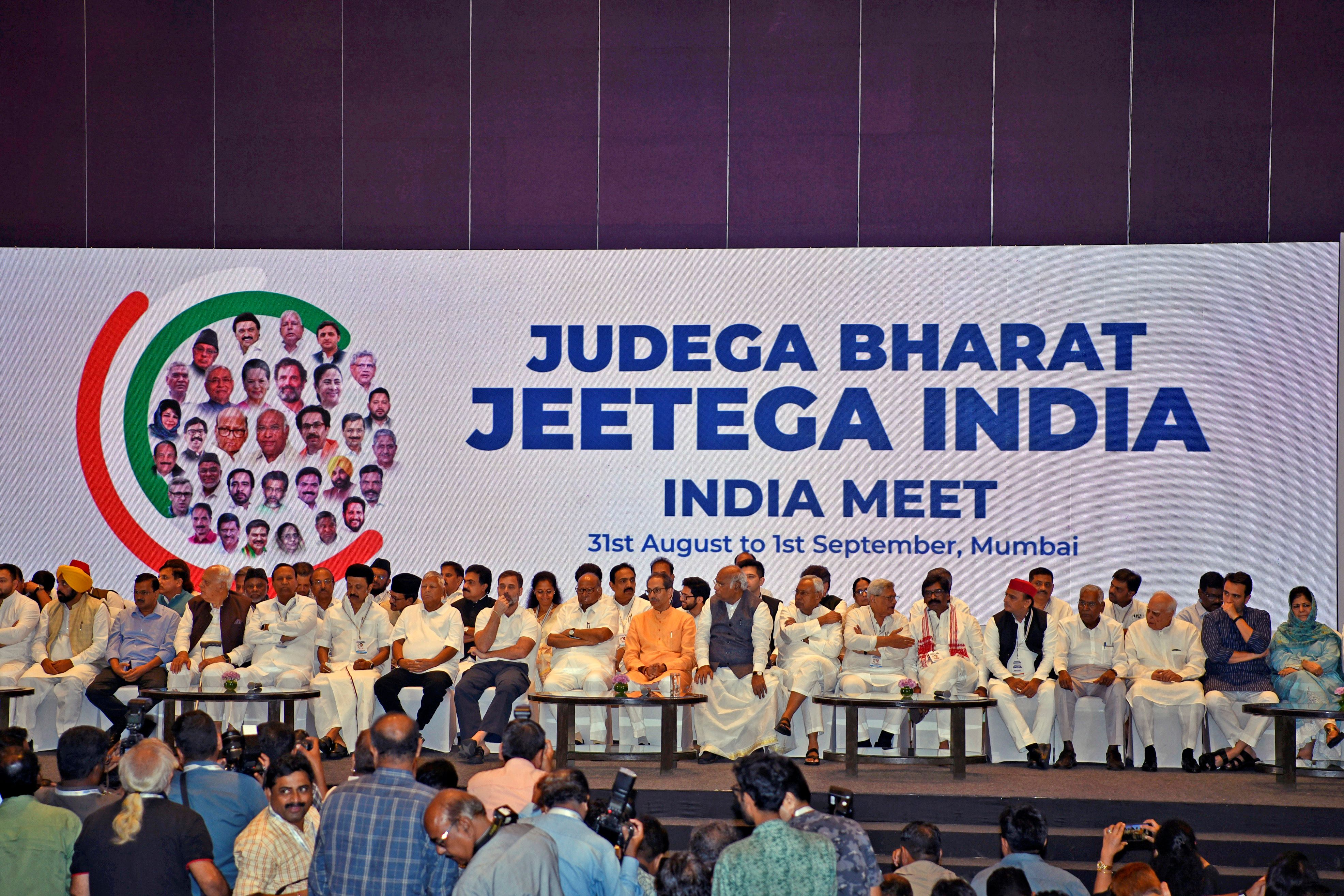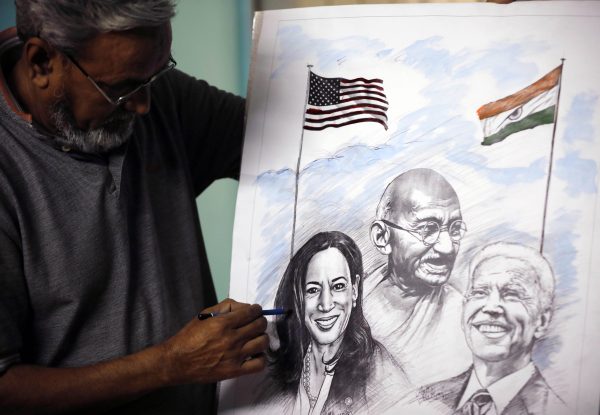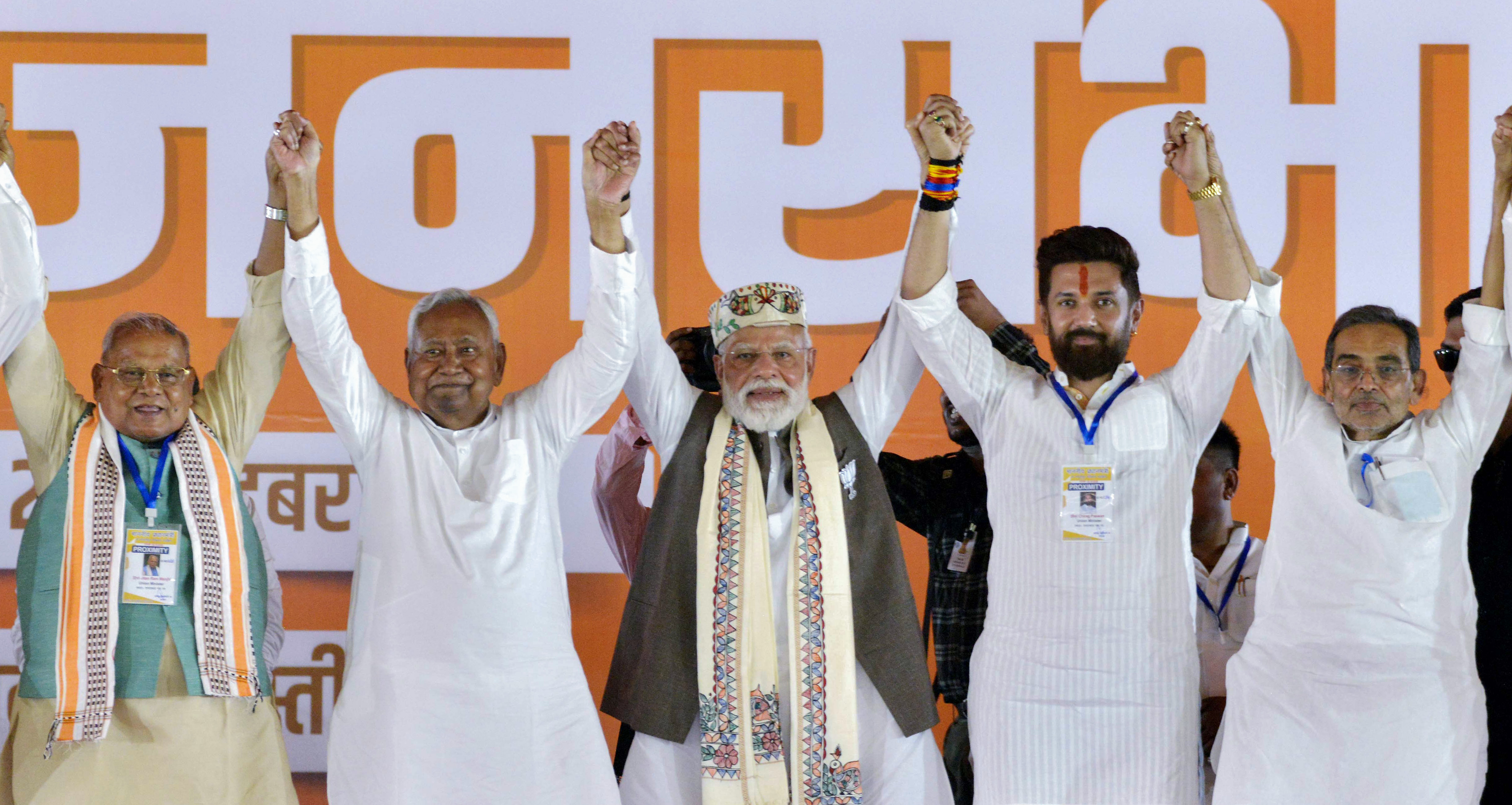As farmers reject the government proposal and go to the Supreme Court, the BJP plans an all-India campaign to reach out to farmers about the benefits of new farm policy. Can a deal be achieved soon?
Our Bureau
New Delhi
The Bhartiya Kisan Union (BKU)has approached the Supreme Court against the three farm laws passed by the Central government, claiming the laws will make farmers “vulnerable to corporate greed”.The farmers’ group has challenged the Farmers (Empowerment and Protection) Agreement on Price Assurance and Farm Services Act, 2020, Farmer’s Produce Trade and Commerce (Promotion and Facilitation) Act, 2020, and Essential Commodities (Amendment) Act, 2020. The BKU(B) has filed an intervention application on several petitions in the apex court against the farm laws, saying these laws will pave way for “cartelization and commercialization of agriculture”. The application sought permission to intervene in the pending case and present arguments.
The application, filed through advocate AP Singh, said, “The Acts were passed hastily without adequate discussion… Inherent weaknesses of the agricultural sector cannot be addressed by way of monetization of farmers.”
It added that despite multiple representations sent by various Kisan groups, the government is not ready to consider their problems. The system needs strengthening of APMC system, MSP and financial support, the plea suggested.
Several petitions are already pending before the Supreme Court, which includes ones filed by DMK MP Tiruchi Siva, RJD Rajya Sabha MP Manoj Jha, Rakesh Vaishnav of the Chhattisgarh Kisan Congress and Bharatiya Kisan Party, against the three farm laws.
The top court had earlier issued notice to the Centre on October 12 seeking its response.
The BKU(B) has also pointed out that farmers have been protesting for several days at Delhi borders, whole multiple rounds of talks with the government have remained inconclusive.
Meanwhile, farmer leader Baldev Singh on Friday said that farmers don’t want amendments to farm laws and want them repealed alleging that these Acts were created in the interest of big companies.
“We don’t want amendments to farm laws. These laws are in the interest of big companies and they should be repealed. We are blocking the Delhi-Jaipur road on December 12,” Singh told ANI.
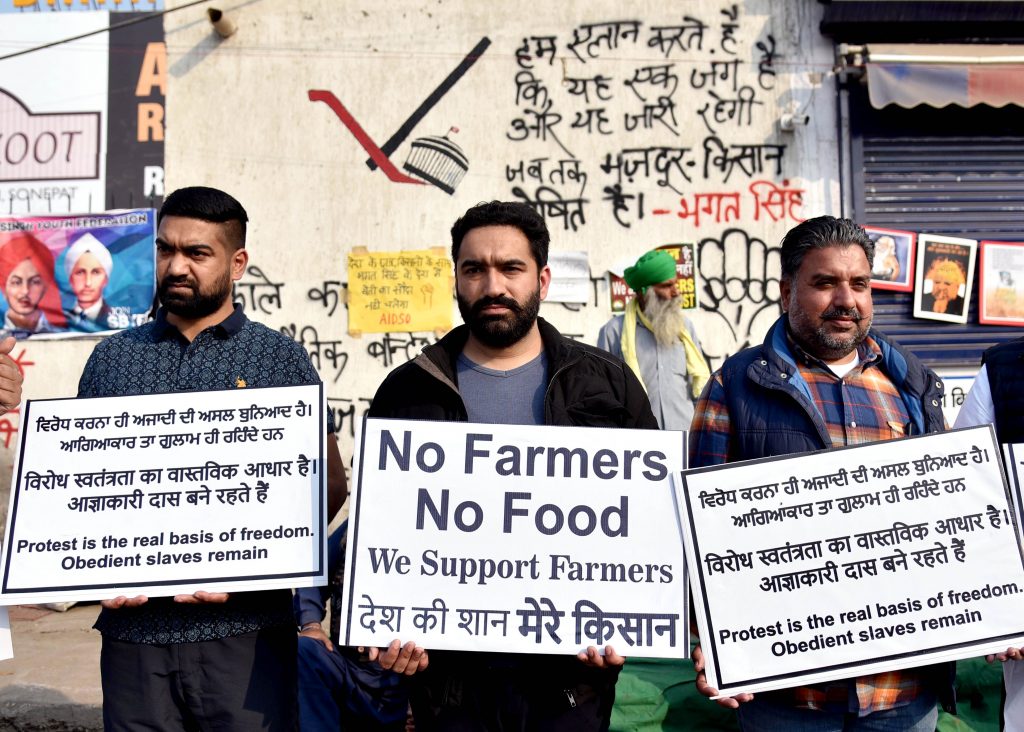
After rejecting the Centre’s proposals to make amendments in the recently enacted farm laws, against which the farmers are protesting, the agitating leaders said that they would intensify their agitation by blocking railway tracks to put pressure on the government to repeal the three Acts.
Amid the ongoing farmers’ protest against the farm laws, Agriculture Minister Narendra Singh Tomar on Friday said that the Central government has sent their proposal to the farmers union, adding that they have discussed it but have not responded to the same.
“Our proposal is with them (farmers), they discussed it but we have not received any reply from them. We came to know through media that they have rejected the proposal. Yesterday I had said that if they want to, we can definitely talk about the proposal,” said Agriculture Minister NS Tomar. The Union Minister expressed hope that the government will be able to find the solution to the issues raised by the protesting farmers.
“I think we will find a solution. I am hopeful. I would like to urge the Farmer Unions that they should break the deadlock. The government has sent them a proposal. If there is an objection over the provisions of an Act, the discussion will be held over it,” Union Minister Tomar said.
While reiterating the Centre’s stand on willingness to hold talks, the Minister urged the farmers to stop the agitation and take the path of discussion. “In our proposal, we have made an effort to suggest a solution to their objections. They should leave agitation and take the path of discussion. The government is ready for talks,” the minister said.
He further said, “We agree that we are not the over-ruling power and Unions might also have something in their mind. So, the government is ready to make reforms in the laws after talks.”
After rejecting the Centre’s proposals to make amendments in the recently enacted farm laws, against which the farmers are protesting, the agitating leaders said that they would intensify their agitation by blocking railway tracks to put pressure on the government to repeal the three laws.
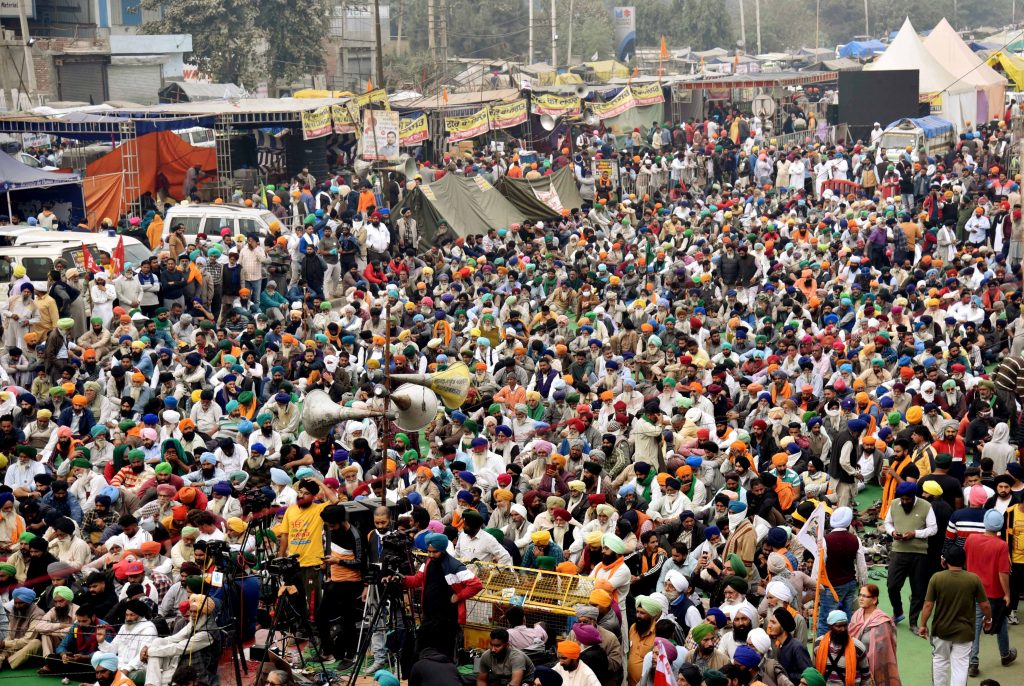
Amid ongoing farmers protest on Delhi border areas against agri laws, Bharatiya Janata Party (BJP) has decided to organize series of measures including press conferences, ‘chaupals’ and Jan Sampark, in all the districts of the country on the issue of the new farm laws from Friday onwards. As many as 700 press conferences, hundreds of ‘chaupals’ and Jan Sampark will be organized in the coming days. BJP General Secretary discussed the issue through video conferencing with state ‘prabharis’ and state president on Thursday.
BJP led government have brought the laws with the aim to benefit the farmers, but the party says that farmers have been misguided by the opposition. Therefore, the party is starting the programmes to educate and inform farmers about the benefit of the laws.
BJP leaders are saying that opposition parties are spreading rumors regarding the reforms. In a bid to clear the rumors on the new laws, the BJP workers and leaders would be explaining the importance of the agriculture reforms.
The farmers’ protest entered 16th day today. They have also planned to intensify the agitation over the next few days in which they have planned to block highways leading to Delhi, gherao BJP leaders and offices and bring out another ‘Dilli Chalo’ march on December 14.
In an important development, East-West Seed, Federation of Indian Chambers of Commerce and Industry (FICCI) and the Embassy of the Netherlands in India jointly organized a webinar on Friday titled ‘How to lift India’s smallholder farmers out of poverty’ with three distinguished World Food Laureates and giants of agriculture, nutrition and innovation, Dr Simon Groot, Dr Rattan Lal, and Dr Surinder Vasal.
In his keynote address, Ambassador of the Netherlands to India Marten van den Berg said, “The Netherlands aims to be a partner to lift smallholders in India and worldwide out of poverty and contribute to zero hunger (SDG 2). For example, together with the Government of India, the Netherlands supports the training of farmers in Centers of Excellence.”
All focus now is on small and middle-level landholders. The farmers unions and the government’s efforts to reach this group will decide the future of this movement and the farm laws as well.
Indian Overseas Congress, USA, demands revocation of farm laws
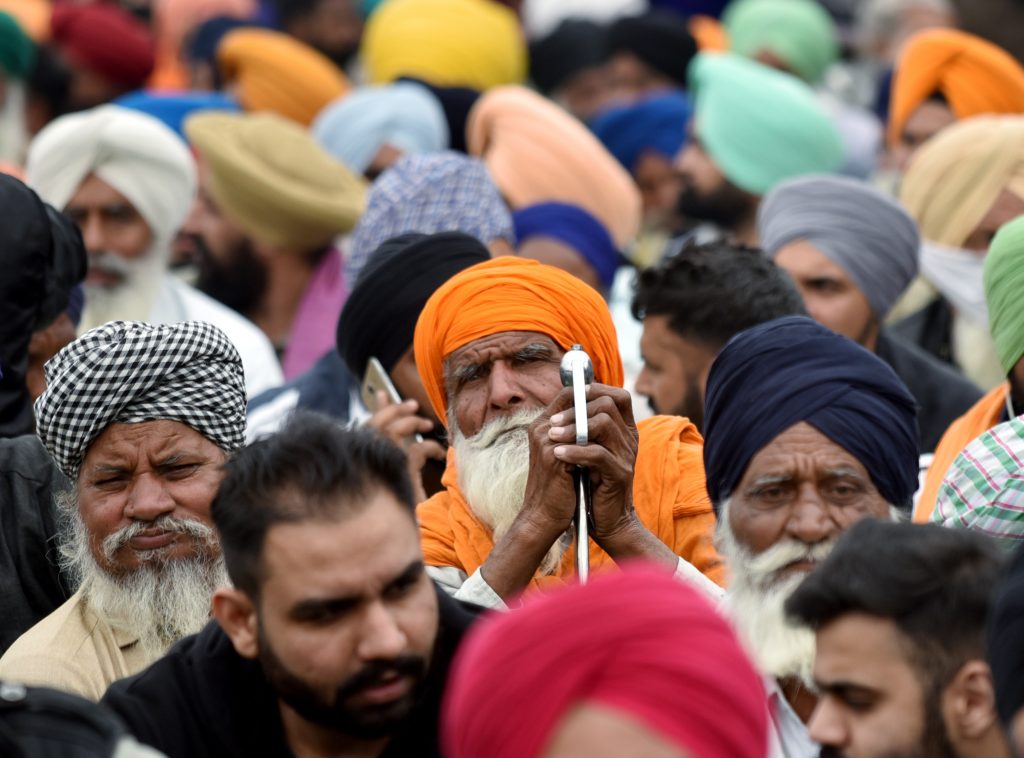
Our Bureau
New York
Indian Overseas Congress, USA,has demanded that Modi Government revokes the newly enacted farm laws and engage in a dialogue with the protesting farmers to resolve this serious crisis. “It is quite unfortunate to see the Government using water cannons and teargas against farmers who are peacefully protesting to safeguard their livelihoods,” said George Abraham, Vice-Chairman of the Indian Overseas Congress, USA, in a statement. “The Modi Administration is systematically trampling the democratic rights of India’s people in terms of freedom of expression and peaceful assembly,” added Mr. Abraham.
Mr. Mohinder Singh Gilzian, President of the IOCUSA, criticized the way the new law was pushed through the Parliament without any consultation with farmers or any input from a select committee. “It is another example of total disregard of federalism and lack of respect for the Parliamentary procedures that have become the hallmark of this Government. It is quite incredible that those who are in power are questioning the patriotism of the farmers who feed the nation.” Mr. Gilzian added.
Mr. Harbachan Singh, the Secretary-General of the IOCUSA, called upon the Government to respond by saying that “if the minuscule corona virus can bring the world down to its knees, there is no telling that farmers can teach their elected officials some lessons when it becomes necessary. It helps, therefore, for the Government to listen to the legitimate demands and calls for protection by the people”.
“The existing Agricultural Produce Market Committee (APMC) system may need reforming, but 425 of them plus 1400 or so purchasing centers are doing their job buying, storing, and forwarding those food grains to buyers across India. These APMCs include farmers, Traders, Agricultural experts, and others contributing towards the purchasing decisions. If they fail to meet a threshold in pricing, farmers currently have the option to sell that to the Government for the Minimum Support Price. This is the mechanism that has been removed in favor of the Ambanis and Adanis, who have taken over all other Industry and Business sectors and demanded that the Government now must do the same in the agricultural sector,” said the statement.
“There is no empirical evidence to prove that getting rid of the Essential Commodity Act will help the farmers with more income and stabilize the prices for consumers. Under the new laws, corporates will be able to stock any amount, and the outlets like Reliance or Amazon could exploit the supply and demand situation to do price gouging. The recent pandemic in the west showed how the prices were manipulated to maximize these online entities’ profits. Farmers and Consumers alike would be placed under the mercy of these corporate giants.”
















